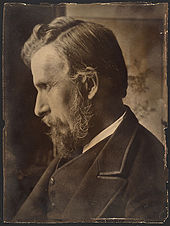 “Yet even if we confine our observations to the existing condition of Europe, we shall soon be convinced that the ‘Rule of Law’ even in this narrow sense is peculiar to England, or to those countries which, like the United States of America, have inherited English traditions. In almost every continental community the executive exercises wider discretionary authority in the matter of arrest, of temporary imprisonment, of expulsion from its territory, and the like, than is either legally claimed or in fact exerted by the government in England; and a study of European politics now and again reminds English readers that wherever there is discretion there is room for arbitrariness, and that in a republic no less than under a monarchy discretionary authority on the part of the government must mean insecurity for legal freedom on the part of its subjects.
“Yet even if we confine our observations to the existing condition of Europe, we shall soon be convinced that the ‘Rule of Law’ even in this narrow sense is peculiar to England, or to those countries which, like the United States of America, have inherited English traditions. In almost every continental community the executive exercises wider discretionary authority in the matter of arrest, of temporary imprisonment, of expulsion from its territory, and the like, than is either legally claimed or in fact exerted by the government in England; and a study of European politics now and again reminds English readers that wherever there is discretion there is room for arbitrariness, and that in a republic no less than under a monarchy discretionary authority on the part of the government must mean insecurity for legal freedom on the part of its subjects.
“If however, we confined our observation to the Europe of to-day (1908), we might well say that in most European countries the rule of law is now nearly as well established as in England, and that private individuals at any rate who do not meddle in politics have little to fear,as long as they keep the law, either from the government or from anyone else; and we might therefore feel some difficulty in understanding how it happened that to foreigners the absence of arbitrary power on the part of the crown, of the executive, and of every other authority in England, has always seemed a striking feature, we might almost say the essential characteristic, of the English constitution.”
▪ Prof. Albert Venn Dicey K.C. Introduction to the study of the Law of The Constitution (Macmillan and Co., 1952) extract from pages 188 through to 189.





Reblogged this on Utopia – you are standing in it!.